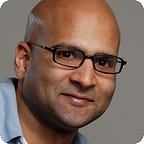Computing Researchers of the World, Unite!
In the last couple of years, I have found myself increasingly ambivalent about the value of research as a vocation. As Hannah Arendt famously said, the point of research is to understand. Clearly in domains like Physics, Biology, Chemistry and even in the social sciences and humanities there is a profound and deep significance to developing better, more accurate, more true accounts of how the world around us works. These models can help us better understand reality, our role in it, and to use that knowledge to make decisions and predict future outcomes.
However, when I think about some of the most important problems facing human society, I wonder what research can do to further contribute to our understanding of these issues, to envision and design potential solutions, or to influence public opinion. Take, for example, inequality — a topic that is important to my own thinking and interests. This is a domain that is already well understood theoretically and empirically (thanks to the work of scholars like Marx, Fanon, Piketty and others), and there are also viable solutions that have been tried and found successful elsewhere (for example, in various Nordic countries, and through the work of social activists the world over).
For inequality, and for other similarly urgent issues (like climate change, environmental degradation, public education, etc.), we already have significant knowledge about their structural and systemic causes, the symptoms thereof, a palette of potential solutions, and a range of organizations and individuals that are willing to try them out. What is lacking is the broad public understanding, political will and resources to implement these solutions and/or to support those organizations and individuals that are willing to do so. Even more significantly, there is push-back and resistance from current power holders that risk losing their power and influence through this redistribution of wealth, influence and societal priorities.
This last bit, to me, is the fly in the ointment. Fundamentally, what is at stake is not a debate on the nature of our reality and various ideas about how to move it in a direction that might be more suitable to broad-based human well-being and flourishing, but a tug-of-war of power between established, vested interests (usually, but not always, white people and/or males), and various insurgents (poor people, racial and ethnic minorities, indigenous communities, women), who might lay claim to some of this power, or at least question the current incumbents’ rights to possess so much of it.
If this is the game we are playing and the stakes we are playing for, then what is the most meaningful possible role for researchers, and for academia more generally? As a set of risk-averse, objective observers we could choose to continue doing what we are doing — namely, generating knowledge and evidence from the sidelines that real activists might someday use to influence policy and affect change. Or, we could use the power and relative stability that we have from our own positions to advocate for and implement solutions, and to support others that are doing so.
There are already a number of scholar activists that are active in the world following the latter path — (Noam Chomsky is probably the most famous living one, but there are many, many others working in various domains and fields). Even Computer Science, a notoriously staid and anti-political field, has had its share — from those that originally founded Computer Professionals for Social Responsibility, to those that continue to refuse funding from defense or military-based sources.
But, it is a new era, and we need a new breed of computing researchers / activists that take a more engaged role in addressing social issues. I am thinking of people like Lilly Irani at UCSD, who has been looking at labor and power in online markets, Arvind Narayanan at Princeton, who studies privacy, security and bias in computational systems, Betsy DiSalvo at Georgia Tech, who looks at equity in computer science education, and our very own Karen Levy, who studies the relation between labor, power and modern, technologically-mediated surveillance systems.
In my opinion, we need more people in the academy who are committed not only to research, but also to addressing the underlying social issues and dynamics that they are studying, by building solidarity with those groups and organizations that are already working to address them. We also need to find ways to support young researchers who choose to take on these kinds of challenges — socially, emotionally, professionally and financially.
For computing in particular, whether this means resurrecting CPSR, or creating funding and reward mechanisms that recognize and acknowledge socially engaged and critical work, or all of these things, I don’t know, but what I do know is that our field has remained on the sidelines of public discourse on important social issues for far too long. Given the importance and relevance of computing technologies — politically, economically and socially — it is about time that computing researchers took a more active role in shaping the future that they want to live in.
